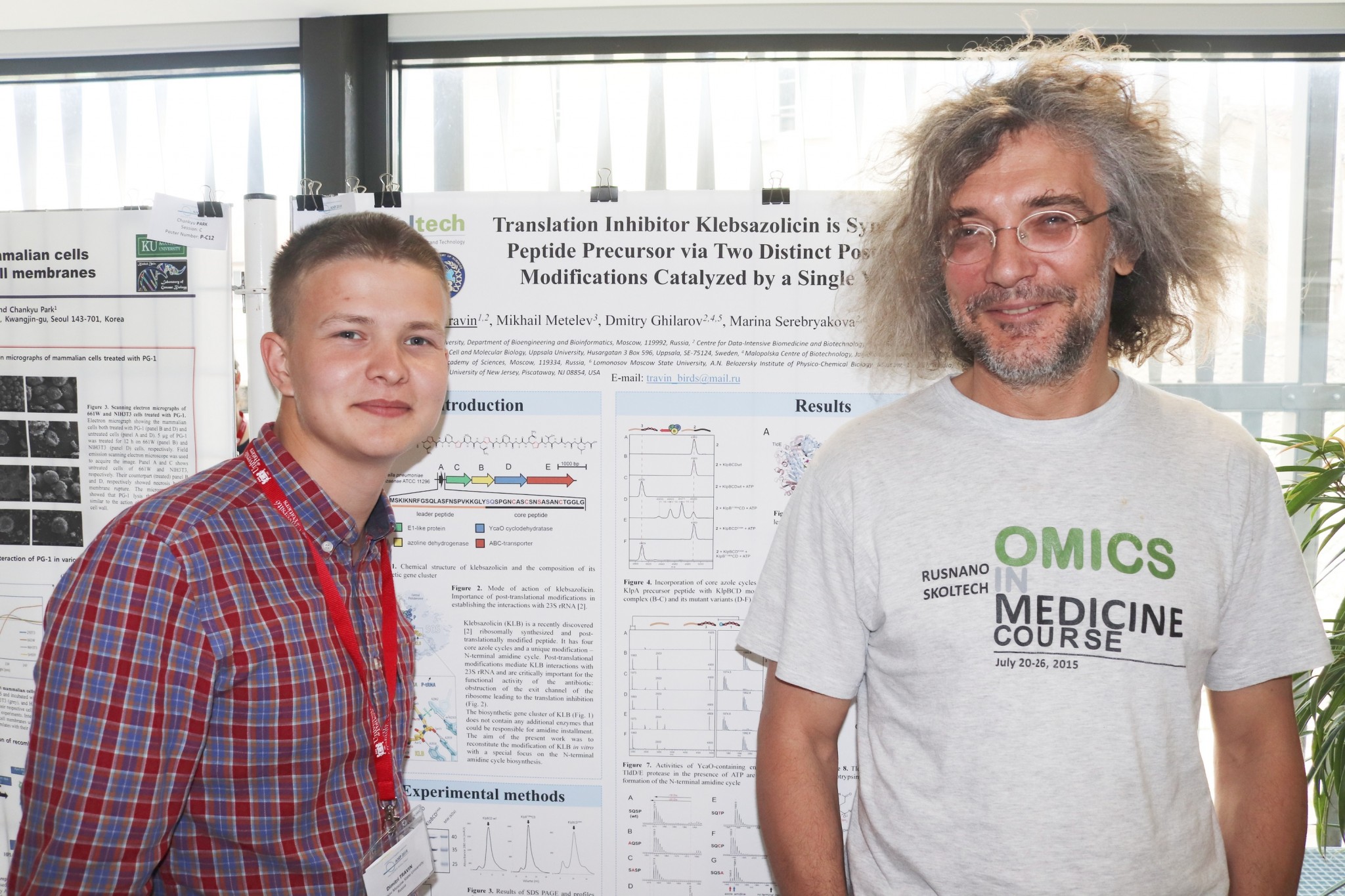Skoltech PhD student Dmitry Travin was honored with the top poster award at the Sixth International Symposium on Antimicrobial Peptides, which was held this summer in Poitiers, France.
This biennial conference covered a host of issues related to antimicrobial peptides – a broad diversity of molecules used by both eukaryotes and prokaryotes to defend themselves against potentially harmful intruders.
Attendees included top researchers from universities and research labs as far afield as China, the United States, Australia and all across Europe.
Skoltech Professor Konstantin Severinov, director of the institute’s Center of Life Sciences (CLS), was invited to present a keynote lecture at the conference and invited along Travin, his long-time supervisee. Travin graduated from Lomonosov Moscow State University (MSU) last month with a Specialist degree in Bioengineering and Bioinformatics, and was immediately accepted into the Skoltech Life Sciences PhD program.
To get the most out of the experience, Travin drew up a poster outlining his recent work on antimicrobial peptides. “Our project was devoted to the chemistry of the biosynthesis of Klebsazolicin (KLB), an antibiotic that was recently discovered by our lab, and which we’re currently studying intensively. It’s a heavily modified peptide that exhibits antibiotic activity against diverse disease-causing bacteria,” he said.
“We’re conducting enzymological and chemical research focusing on the enzymes responsible for unusual modifications that convert an inactive precursor peptide into a highly active KLB molecule,” he added.
Asked why he thought his poster attracted the attention of the conference’s jury, Travin was at a loss, as he had not expected to win any accolades.
“In my opinion, the main value of conferences isn’t the possibility of winning awards, but rather the ability to foster new ideas and collaborations,” Travin said.
In that spirit, he made it his mission to engage with as many prime movers in the field as he could. He introduced himself to heads of international laboratories, leading professors and other high-level scientists in order to show them his work and elicit valuable feedback.
While his aim had primarily been to take advantage of the opportunity to gain expert insights in order to enhance his research, Travin believes that his efforts may have inadvertently increased the visibility of his project, thereby attracting the jury’s attention.
He was grateful to Severinov for having shown him the ropes of conference networking. “This was the first international conference I have attended since beginning my work on antimicrobial peptides. Professor Severinov showed me how best to interact with other researchers, and how to lay the groundwork for future collaborations,” Travin said.
Travin has been working with Severinov for more than five years, since his freshman year at MSU. Before being admitted to Skoltech PhD program, he was also a research intern at CLS.
“Dmitry was presenting his work that was recently published in the Journal of the American Chemical Society, the world’s top chemistry journal. Having a first-authored paper in a journal of this caliber is highly unusual for any undergraduate. Dmitry’s work has shown how versatile the enzymes involved in KLB biosynthesis are, and may open the way for creating semi-synthetic antibiotics not found in nature. The quality of his work and the engaging manner in which he presented it won the jury over and allowed him to establish important collaborations with two labs from the United States and one French lab right by his poster. So Dmitry will have his hands full in the next few years extending his current work in areas as diverse as structural biology and antibiotic-mediated interactions of bacteria and agriculturally important plants,” said Severinov.

